| | | | | | | Presented By The U.S. Global Leadership Coalition | | | | Axios World | | By Dave Lawler ·Sep 23, 2021 | | Welcome back to Axios World. - We're spending most of this evening (1,870 words, 7 minutes) in Latin America, looking at the growing influence of China and the battle for Biden's attention.
| | | | | | 1 big thing: U.S. friends in Latin America are turning to China | 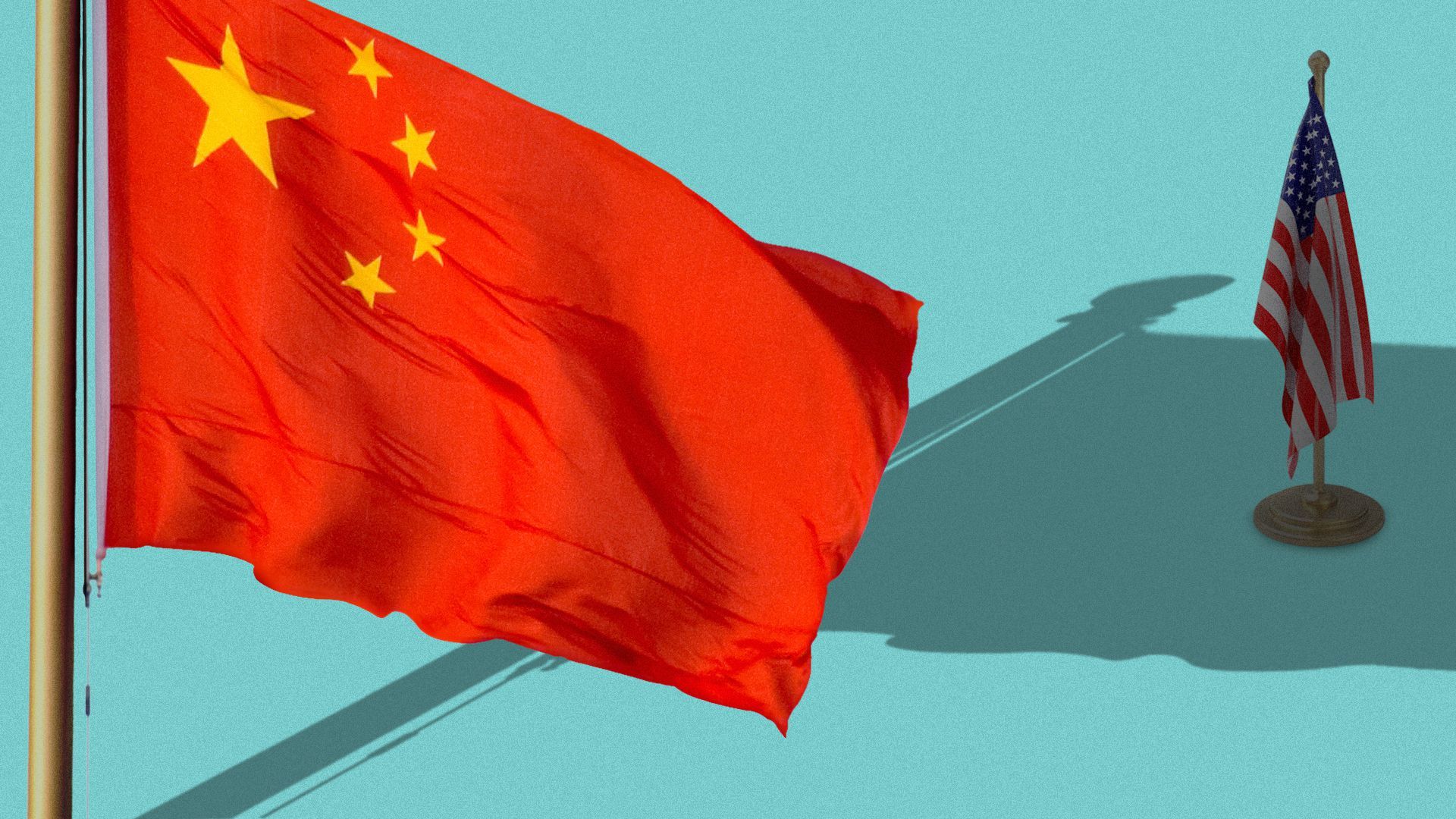 | | | Illustration: Shoshana Gordon/Axios | | | | The U.S. is losing Latin America to China without putting up a fight, Ecuador's ambassador to Washington told Axios, laying bare her frustrations with early inattention from the Biden administration. Why it matters: Ecuador isn't alone. China has deepened its engagement in the region, and it's now the top trading partner for many of the region's largest economies. That gives Beijing considerable leverage in a region historically dominated by the U.S. and makes Latin America a major frontier in the global competition for influence. - Without more attention from Washington, even U.S.-friendly governments will conclude that "we're still just the backyard," Ambassador Ivonne Baki said in an hour-long interview in her office.
- "And China is waiting, saying, 'We're here. We're giving you money.' They want control of course, but they don't say that."
Zoom in: Ecuador's new center-right president, Guillermo Lasso, currently has a 75% approval rating after a successful vaccination push. His top economic priority is to secure trade deals with all of the world's biggest economies, first and foremost the United States — a responsibility that falls on Baki's shoulders. - "They don't see the urgency of the problems that could happen if we don't do something immediately," Baki says of the administration.
- Lasso's sky-high approval won't last long. The country is polarized and the economy was badly damaged by the pandemic. A signal from Washington could go a long way, she contends.
The other side: Beijing is prepared to move quickly on a free trade deal with Ecuador, which the governments hope to finalize by March. - "We don't want to go there, [Lasso] doesn't want to," Baki says of a shift toward China. But he might be "obliged to."
- "Xi Jinping is calling the president. He wants to speak with him. [Vladimir] Putin wants to speak with him," she adds. And they're calling with concrete proposals.
- Ecuador was thankful for Biden's donation of 2 million vaccine doses in July, Baki says. But China had already provided 13 million.
Zoom out: Baki's comments may be unusually candid, but her sentiments are widely shared. - "It's a narrative that we're hearing across the entire region, and I think it's not without reason," says Margaret Myers of the Inter-American Dialogue.
- Reflecting on the political turmoil across the region and what he saw as limited U.S. engagement, another South American diplomat told Axios the U.S. would look up one day and realize it had no friends left in the hemisphere.
The big picture: Like Donald Trump and Barack Obama, Biden has looked to the Indo-Pacific to counter China's growing influence. - Yes, but: "Great power competition has come to the Americas," says Daniel Runde of the Center for Strategic and International Studies, even if Washington hasn't woken up to it yet.
- The U.S. needs friends in its hemisphere with whom to cooperate on issues like migration, or when crises emerge, as in Venezuela and Haiti.
- China's trade dominance could allow it to thwart those U.S. objectives, peel countries away from Taiwan, influence the way politics and business are conducted, and, down the road, potentially even establish a military presence.
"The way they have found to do this is through trade agreements, but certainly China's interests in the region go way beyond that," says Nicolás Santo, author of the China Notes newsletter on China-Latin America political and business dynamics. - "I am shocked by how little attention the U.S. has paid to this topic over the last 10 years, and even now," Santo adds.
The bottom line: Baki says she still has hope that Biden will take a more proactive approach. - "He believes in the region," she says, noting his work in the Senate and as Barack Obama's point man in the hemisphere. "So I thought he would put it as a priority."
|     | | | | | | Part II: How the trade winds changed | 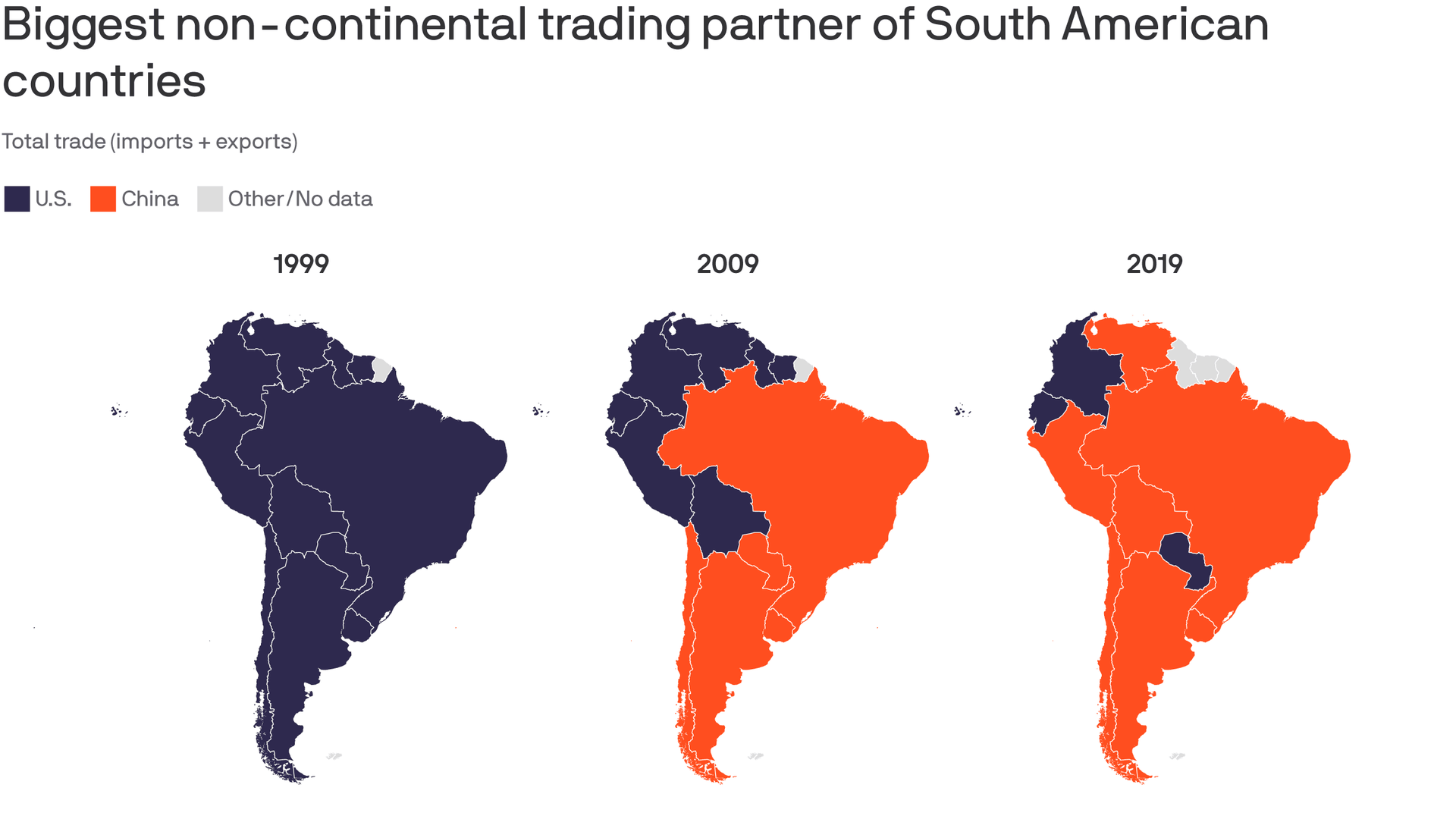 | | | Data: World Bank and Observatory of Economic Complexity; Chart: Kavya Beheraj/Axios | | | | The U.S. was the top trading partner of nine of the 12 countries in South America two decades ago and the top partner across the board from outside the continent. Breaking it down: China has now surpassed the U.S. in all but Colombia, Ecuador and Paraguay, and it may soon be the largest partner for those countries as well. - China is mainly importing raw materials and building infrastructure. In terms of culture and tourism, and deal-making in the region's growing tech hubs, relations with the U.S. are far deeper.
- "It's not as though the U.S. is no longer a critical ally for countries in the region," Myers says. "It's just that China is very much present ... in sectors where the U.S. isn't."
- China is willing to do business in authoritarian-leaning countries that are shunned by the U.S., and it has the advantage of speed, whether in delivering infrastructure or vaccines. Many of the same dynamics have helped China become a major power in Africa.
The U.S. is often left reacting to China's moves, rather than driving the agenda. - One exception is an unusual deal struck in the final days of the Trump administration, in which the U.S. International Development Finance Corporation agreed to invest in Ecuadorian oil and infrastructure if those funds were used to pay down the debt to China, and if Ecuador kept Huawei out of its 5G networks.
What to watch: It's unclear if Biden will pursue similar deals — or whether many countries in the region would be prepared to so explicitly side with the U.S. over China. |     | | | | | | Part III: Choosing China, by default |  | | | Chilean President Sebastián Piñera (R) with Xi Jinping. Photo: Kenzaburo Fukuhara/Kyodo News - Pool/Getty | | | | President Luis Lacalle Pou of Uruguay spoke on prime time TV earlier this month to announce that his country would explore free trade talks with Beijing, despite concerns that it would undermine the regional Mercosur bloc. - The center-right, pro-business leader has also proposed trade talks with the U.S. but attracted little interest, Eric Farnsworth and Carlos Mazal write in Barron's.
- "Montevideo would prefer to develop ties with Washington over Beijing. But so far, that option has been unavailable. And Uruguay is far from unique across the Americas," they write.
Between the lines: It may surprise U.S. observers that, in a climate of U.S.-China tensions, a U.S.-friendly president like Lacalle Pou would see political advantage in heralding a potential deal with China so prominently. - But since the announcement, "the only thing people talk about is China," says Santo, who is from Uruguay but spent two years working for the government of the Chinese city of Foshan.
- "The toxic political issues associated with China are not a concern for countries in the region," he says. When it comes to the "Yanquis," everyone has a political opinion, he says. Not so for China.
"Every single Latin American country is seduced by the potential of the China economic opportunity," he says. |     | | | | | | A message from The U.S. Global Leadership Coalition | | What's it worth to vaccinate 70% of the world against COVID-19? | | | 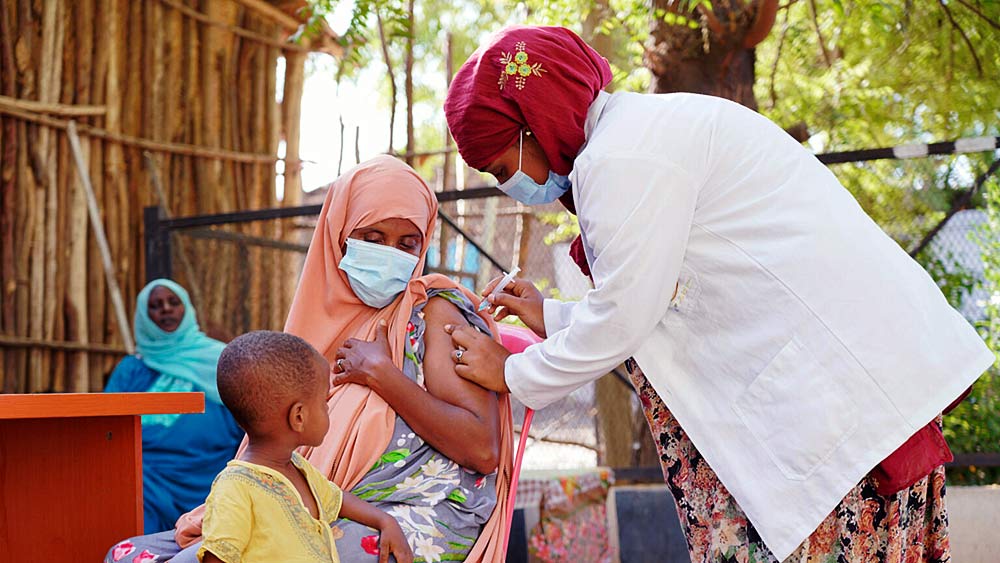 | | | | What's it worth? This week, world leaders will ask this very question at a global health summit hosted by the U.S. The answer: protecting the health of Americans and saving lives because as long as the virus is anywhere, no one is safe. Learn more: What's it worth to end the pandemic? Everything. | | | | | | Bonus: Where in the World? | | Screengrab via Apple Maps Today we're visiting Africa's three "megacities," with populations over 10 million. Can you name them? Scroll to the bottom for the answer. |     | | | | | | 4. Berlin dispatch: Scholz closes in on Merkel's office |  Data: Forsa; Chart: Danielle Alberti/Axios BERLIN — The streets of Berlin are plastered with campaign posters spanning every color of the political spectrum three days out from a landmark election, Axios' Zach Basu reports. Behind the scenes: Top officials with the center-left Social Democratic Party (SPD) are cautiously optimistic: Polls have stabilized in the last two weeks, and their candidate for chancellor — Finance Minister Olaf Scholz — is favored to evict the ruling Christian Democratic Union from the chancellery after 16 years under Angela Merkel. - The SPD has spent 75% of its media budget on paper campaign materials — a stunning figure in comparison to U.S. elections, but one that reflects a simple strategy that officials believe is resonating: Wer Scholz will, wählt SPD. "If you want Scholz, vote for the SPD."
- With the incumbent chancellor declining to run for the first time ever, SPD operatives view Scholz's high approval rating in a field of unpopular candidates as their key to victory. By some estimates, up to 80% of the electorate is made up of swing voters, and the parties often overlap in terms of ideology.
- Thus, the SPD is making its case that its leader — who even party officials admit isn't charismatic or inspiring — can provide the stability, pragmatism and trustworthiness that Germans have come to expect under Merkel.
What to watch: Even if the SPD comes in first on Sunday night, the shape of the next German government will remain uncertain. Zach will bring you the latest in Monday's edition. |     | | | | | | 5. Global news roundup | 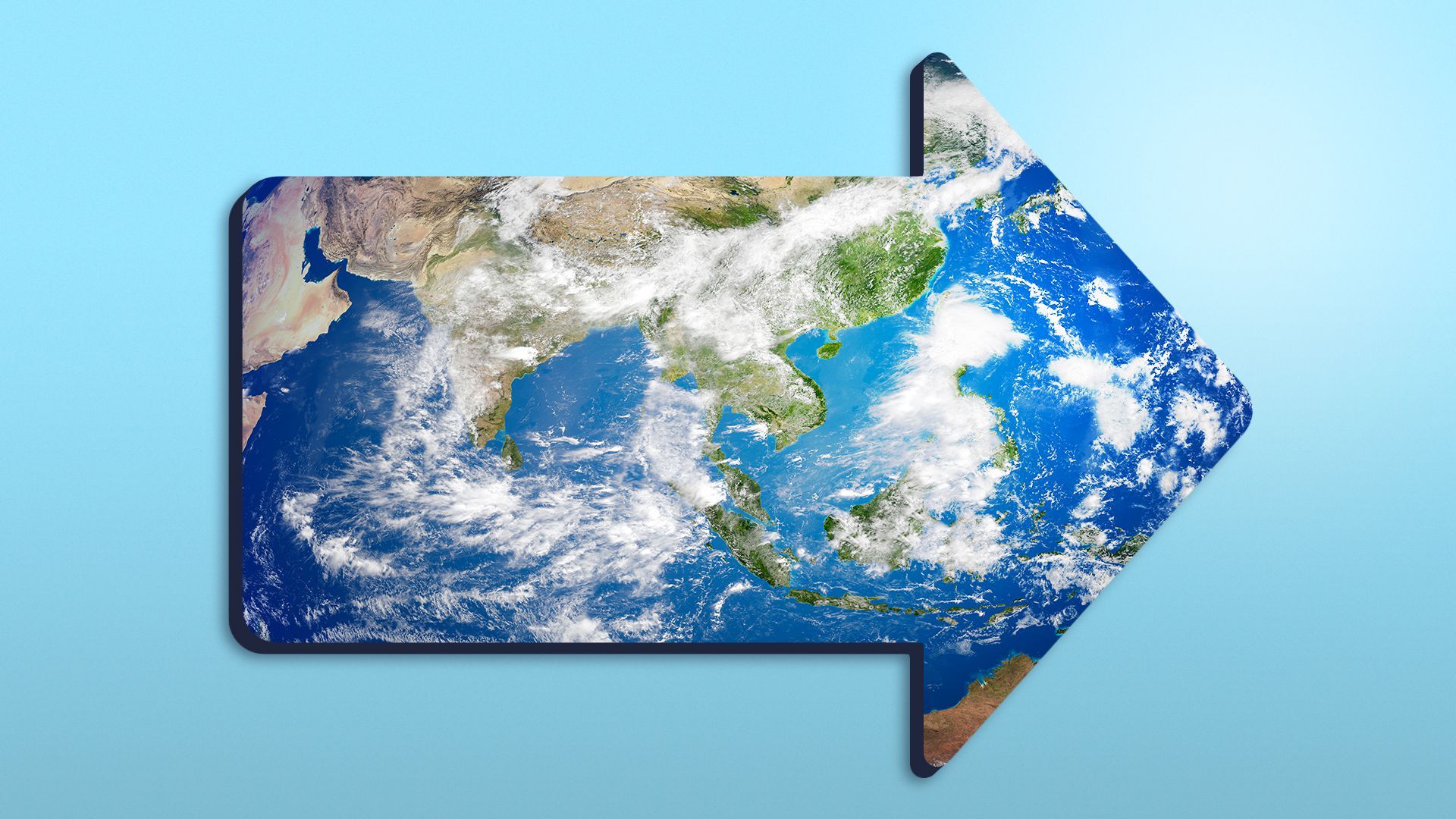 | | | Illustration: Annelise Capossela/Axios | | | | 1. Chinese President Xi Jinping made perhaps the biggest news splash at the UN General Assembly by pledging that China won't build new coal-fired power plants abroad. 2. Canada's election on Monday played out almost exactly like the last one in 2019. - State of play: Prime Minister Justin Trudeau gets a new term, but not the majority he sought by calling an early election.
3. Tunisian President Kais Saied has declared that he will rule by decree as he moved to amend the political system. - He seems in little hurry to hand over power after seizing it on July 25 by firing the elected parliament and prime minister.
4. The U.S. special envoy for Haiti resigned over the "inhumane, counterproductive decision to deport thousands of Haitian refugees." 5. The EU wants to force cellphone manufacturers to adopt a single charging method that will work across devices. |     | | | | | | 6. Foiled coup exposes Sudan's divided government | 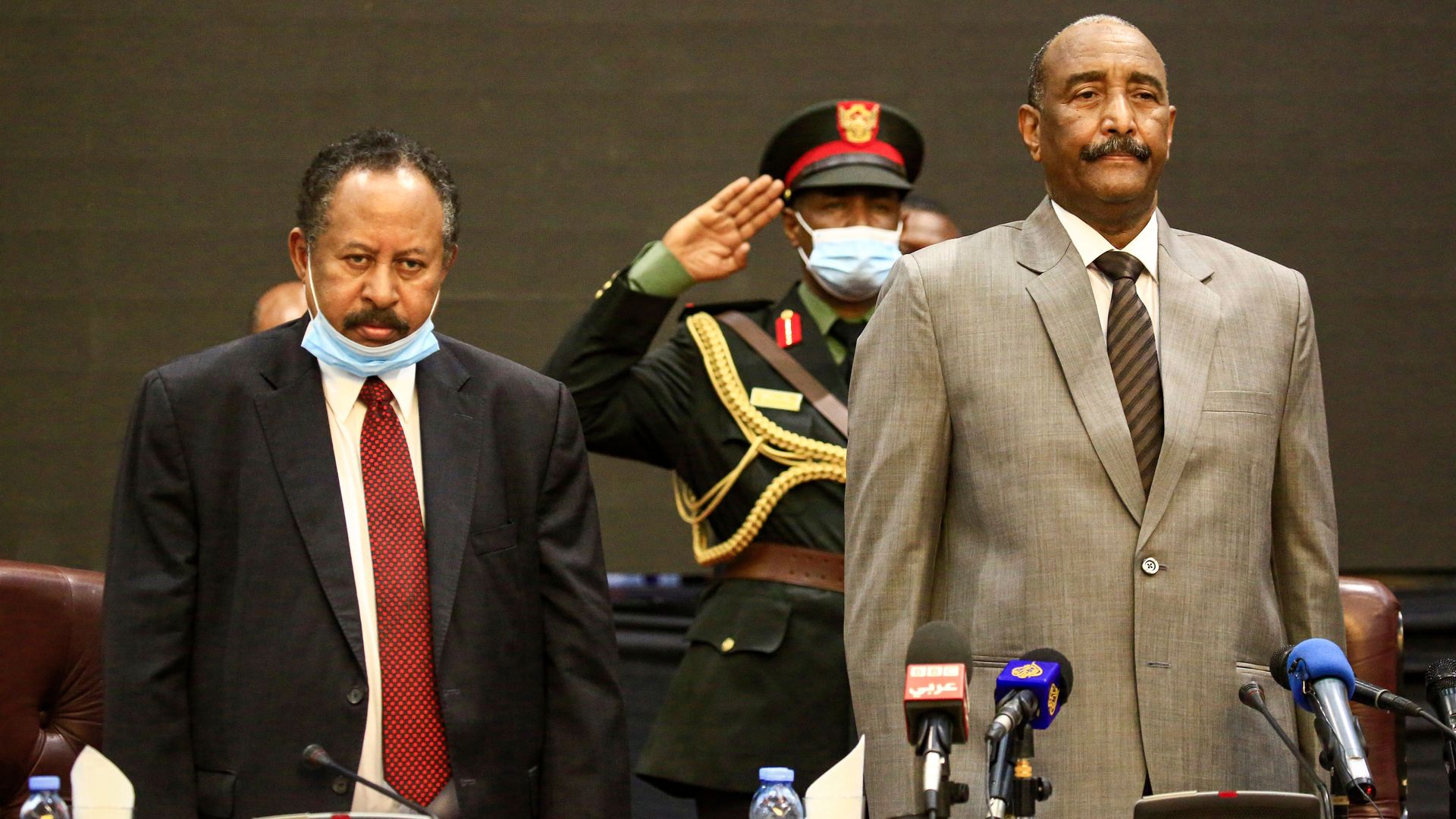 | | | PM Hamdok (left) and Gen. Burhan (right). Photo: Ashraf Shazly/AFP via Getty | | | | Rather than uniting in the face of a shared threat, a foiled coup attempt in Sudan on Tuesday has further exposed the divisions between the civilian and military elements of the government, writes Wasil Ali, former deputy editor of the Sudan Tribune. The big picture: After dictator Omar al-Bashir was toppled in 2019 in a popular uprising, the Sovereign Council took power to manage a three-year transition to democracy, led initially by Gen. Abdel Fattah al-Burhan. - A civilian is supposed to take charge in November and would be Sudan's first civilian head of state since 1989. But it remains to be seen whether the military will cede the position.
- Infighting has already delayed the formation of a legislative assembly, which would provide some civilian oversight of the military and be a major step forward in the democratic transition.
- The coup attempt could complicate things further. The sides have offered differing accounts of what happened, and what lessons should be drawn.
What to watch: Some also suspect that the military is happy to see the civilian government struggle because that could make a military takeover down the road more palatable. Go deeper |     | | | | | | 7. Stories we're watching | 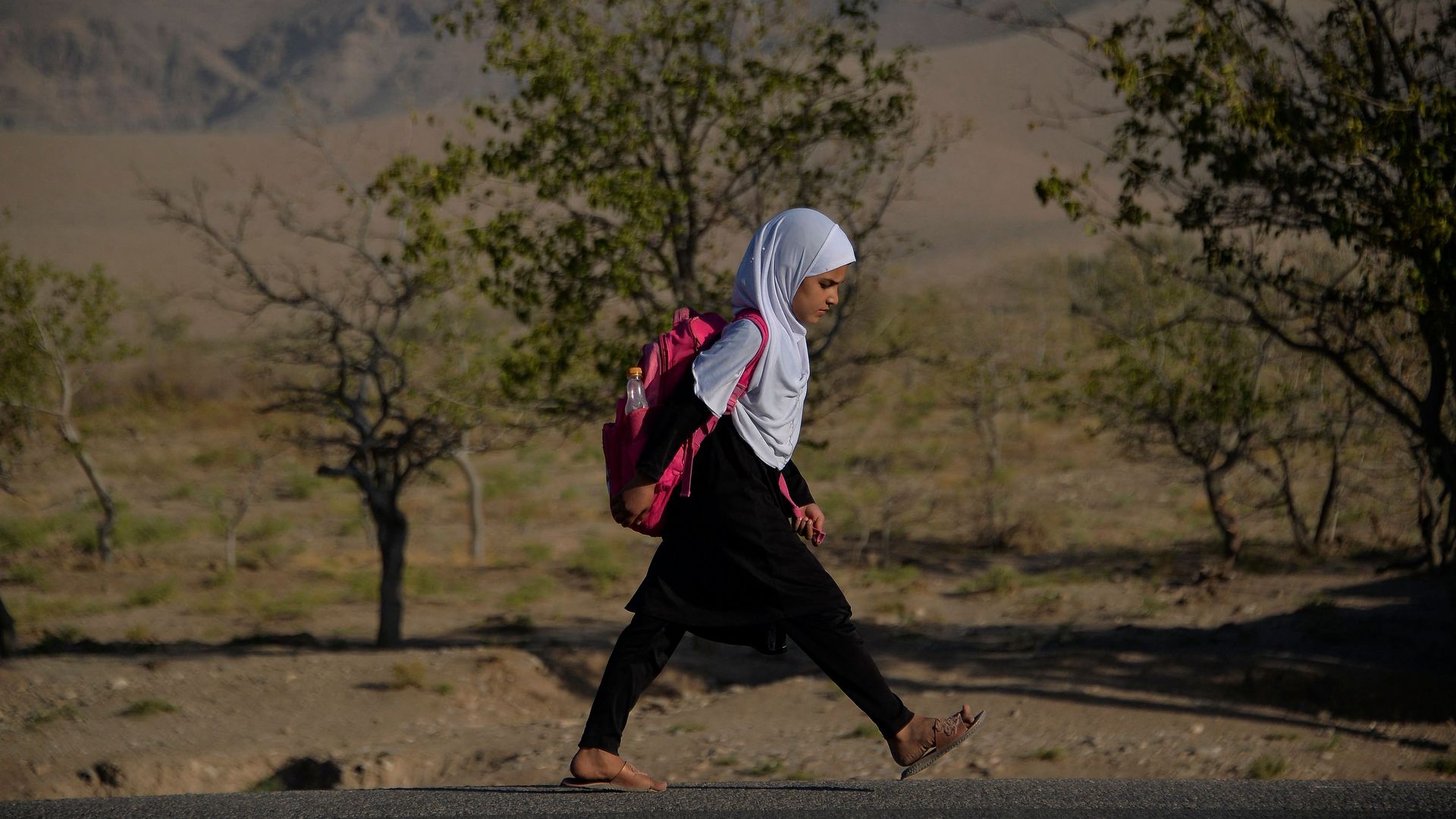 | | | Walking to school in Herat, Afghanistan. Photo: Hoshang HashimiAFP via Getty | | | - Internet freedom declines for 11th year
- Germany ending quarantine subsidies for unvaccinated workers
- India's Supreme Court allows women to apply to top defense academy
- Assassination attempt roundup: Court says Russia killed Litvinenko; Third Skripal attacker charged; Shots fired at Ukraine president's adviser.
- U.S. government buying Chinese drones
- Biden's awkward call with Macron
- Jake Sullivan set to be most senior Biden official to visit Saudi Arabia
Quoted: "Prenez un grip. ... Donnez-moi un break." — U.K. Prime Minister Boris Johnson on Wednesday, addressing the French reaction to the submarine surprise |     | | | | | | A message from The U.S. Global Leadership Coalition | | What's it worth to strengthen global health systems? | | | 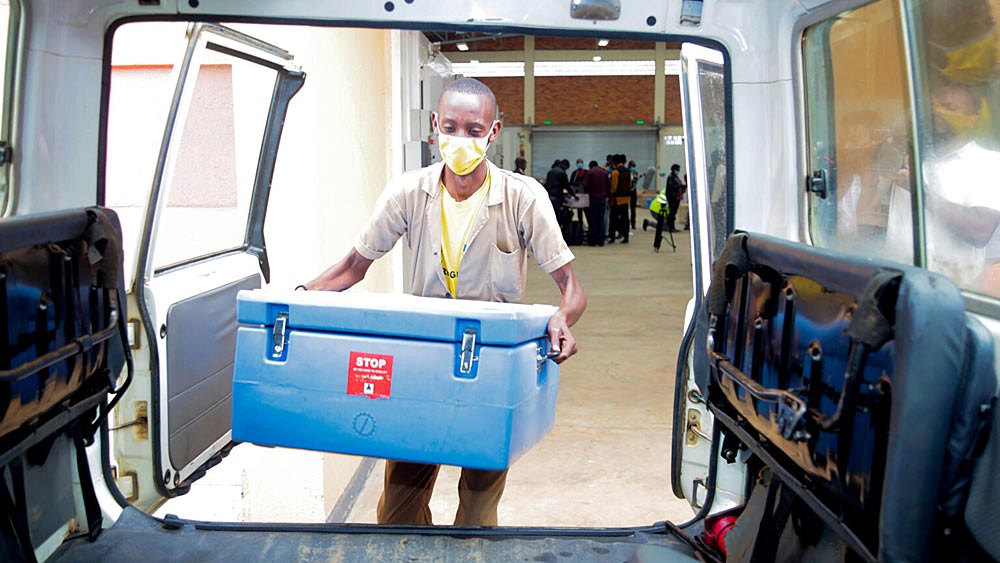 | | | | World leaders will meet at this week's global summit to ensure delivery of vaccine shots in arms in the world's hardest to reach places. Strengthening health systems will not only end this pandemic but stop the next one. What's it worth? Keeping our kids in school and protecting America's recovery. | | | | Answer: Kinshasa (red pin), Lagos (purple pin) and Cairo (X). |  | | It'll help you deliver employee communications more effectively. | | | | | | Axios thanks our partners for supporting our newsletters. If you're interested in advertising, learn more here.
Sponsorship has no influence on editorial content. Axios, 3100 Clarendon Blvd, Suite 1300, Arlington VA 22201 | | | You received this email because you signed up for newsletters from Axios.
Change your preferences or unsubscribe here. | | | Was this email forwarded to you?
Sign up now to get Axios in your inbox. | | | | Follow Axios on social media:    | | | | | |







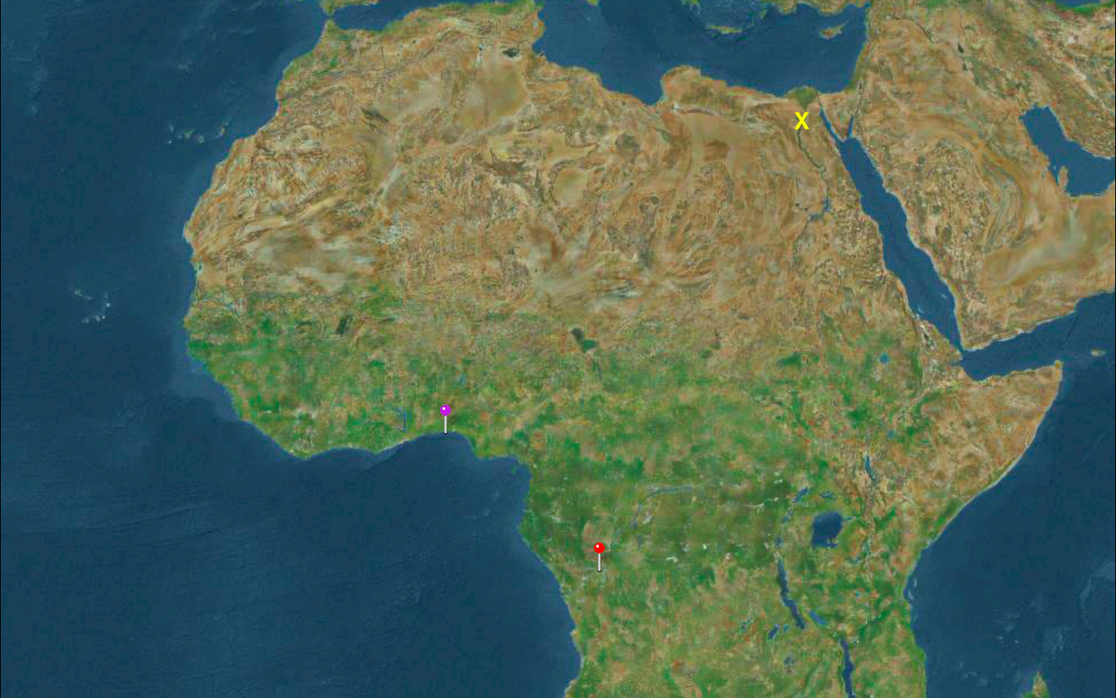





No comments:
Post a Comment